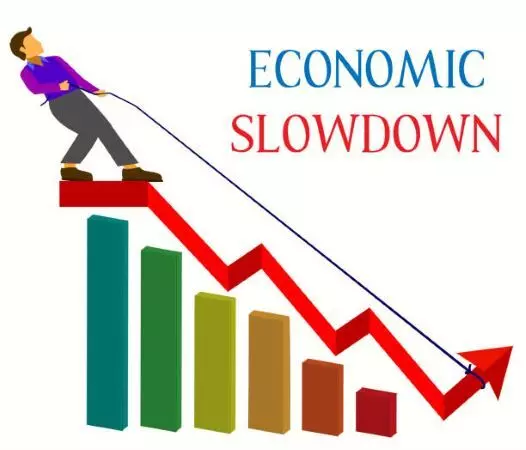
Slowdown in unincorporated sector highlights economic distress
text_fieldsThe Union government recently released the Annual Survey of Unincorporated Sector Enterprises (ASUSE) reports for 2021-22 and 2022-23. This annual survey, previously conducted every five years, provides crucial insights into India's unincorporated sector enterprises (USEs), a significant source of non-agricultural employment and contributor to the nation's gross value added (GVA).
The ASUSE reports indicate a concerning trend of slowdown in the growth of USEs, reflecting broader economic distress. While official press releases emphasize the growth between 2021-22 and 2022-23, a more comprehensive comparison with the 2015-16 survey reveals the impact of major economic shocks, including demonetisation, the introduction of the Goods and Services Tax (GST), and the COVID-19 pandemic.
From 2010-11 to 2015-16, the sector's GVA grew at over 7% annually in real terms. However, between 2015-16 and 2022-23, the GVA contracted by about 0.5% per annum. The number of USEs increased from 5.77 crore in 2010-11 to 6.34 crore in 2015-16, and then only slightly to 6.5 crore in 2022-23, with a notable dip to 5.97 crore in 2021-22. Although the number of enterprises in 2022-23 is higher than in 2015-16, the GVA per enterprise at Rs 2.38 lakhs represents a decline in real terms compared to Rs 1.82 lakhs in 2015-16.
The workforce in these enterprises has also reduced, from 11.13 crore workers in 2015-16 to 10.96 crore in 2022-23. Over 85% of these enterprises are own account enterprises (OAEs), which made an average GVA of only Rs 1.27 lakhs in 2022-23, equivalent to a mere Rs 10,000 per month. Hired worker establishments (HWEs), which make up the remaining 15%, saw a slight real-term decline in average annual emoluments for hired workers to Rs 1.25 lakhs in 2022-23.
Despite the push for digitization, only 6.1% of enterprises reported using a computer in 2022-23, a marginal increase from 5% in 2015-16. However, the use of the Internet for entrepreneurial activities has seen a significant rise, with 21% of enterprises reporting usage, up from 4% in 2015-16. Additionally, about 41% of unincorporated non-agricultural establishments operate within household premises.
Women play a critical role in these enterprises, constituting almost 26% of all workers. Among OAEs, women represent 31% of the workforce, while in HWEs, they account for 17%. Ownership patterns reveal gender disparities, with 71.8% of proprietary establishments being male-owned, and only 22.9% female-owned. Notably, about 4% of the establishments are owned by Self Help Groups (SHGs), predominantly women-led.
The survey highlights the precarious nature of employment in the USEs. The majority of workers lack social security, with only 5.2% classified as 'formal hired workers.' Informal hired workers make up 65.5%, while 23.8% are working owners, and 5% are unpaid family members. This underscores the low-paying and insecure nature of jobs in this sector.
The USEs represent a vital component of the Indian economy, providing employment to a significant portion of the labour force. However, compared to a decade ago, the sector's size and its ability to absorb labour have diminished. This decline, coupled with the lack of job creation in the formal sector, indicates broader economic distress and jobless growth. Economic gains have been concentrated, benefiting only a few.























